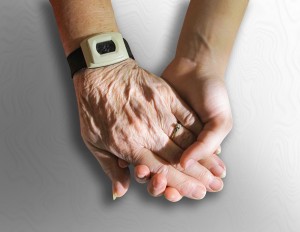 Though the surfacing of regret is certainly not limited to one particular age group, it is a mile marker that often signals that we’ve passed a spiritual halfway point in our life’s one-way journey and, to hijack a familiar metaphor, there really are no U-turns allowed.
Though the surfacing of regret is certainly not limited to one particular age group, it is a mile marker that often signals that we’ve passed a spiritual halfway point in our life’s one-way journey and, to hijack a familiar metaphor, there really are no U-turns allowed.
Those who follow Christ trust that his life, death and resurrection saves us from our sins—the ultimate U-turn, if you will—but he often uses the consequences of those sins as refining tools in our lives. A life lived under those consequences can rack up some hard miles on our emotional odometers. Many Evangelical churches are good at showcasing the stories of “once was lost, now am found”, which often highlight the effect of the crush of regret as a result of acknowledgement of sin in a person that drives them to Jesus. When we’ve made poor or sinful choices after we’ve come to faith in him, let’s face it – we who are the big “C” Church aren’t always so great at peeling away the shadow of shame and helping one another process our regrets before God and with each other. The more we expect one another to be exemplars of abundant life, the harder it will be to recognize that this life has very little to do with acting in a 24/7 commercial spotlighting the “benefits of Jesus”.
Regret may be the gateway into midlife for some of us. It has to do with consequences of our actions. At midlife, the consequences are more pressing and inescapable. Our souls recognize that there is no do-over when it comes to our life choices, and we must find a way to reconcile with that reality.
Regret and remorse are two different things. Regret is based in the loss we experience in the wake of our poor or painful choice(s) as we realize what has followed in the wake of our decision: “I wish I wouldn’t have eaten that cold pizza out of the office refrigerator for breakfast because I felt like puking for the rest of the day.”
Remorse is regret’s kissin’ cousin, but has to do with sorrow over the choice itself, rather than the consequences: “I shouldn’t have stolen that cold pizza out of the office refrigerator and eaten it for breakfast because it didn’t belong to me.” Remorse and regret often bleed into each other in the same way blue and violet bleed into one another on a rainbow.
If it is God’s purpose to grow us into the image of Christ, it may be that regret can be used by him to move us toward maturity. It readies us for his pruning shears that can rid us of deadwood as he prepares us to live a parable, bearing fruit from places made barren by regret.
We all need faith communities sensitized to the kinds of struggles and failures that mark our existence. Too many tend to oversell a decision to follow Jesus as a promise where all your problems will be solved, provision miraculously appears, relationships will be restored, and your teeth will become four shades brighter. (Cue angels singing in barbershop quartet-style harmony.) One unintended consequence of this is there tends to be a Before Christ and After Christ two scale system for the way we treat sin. The A.C. curve is much steeper. (In fact, Scripture supports this, as can be witnessed from Paul’s handling of the sins rife in the congregation at Corinth. But remember, Paul wrote and spoke with the goal of fully restoring sinners to fellowship: “Now instead, you ought to forgive and comfort him, so that he will not be overwhelmed by excessive sorrow. I urge you, therefore, to reaffirm your love for him.”
Paul recognized that the community served an important role in helping this man face his sin, but also helped him process his regret in a redemptive manner. Modern-era churches that include times of corporate confession and assurance in their liturgy at least offer a nod in this direction, and congregations who can point members toward well-trained spiritual directors (many of those who are interested in spiritual direction tend to be second-half-of-life Christ-followers) or counselors are improving the possibilities for helping those blindsided by regret at midlife to flourish in their second adulthood. A trusted small group of listening, praying, discerning friends may work informally in much the same manner.
If you are a midlife (or beyond) adult, how has God used other people to help you face and reconcile with your regrets? Have you found your local church has helped or hindered this process in your life?











